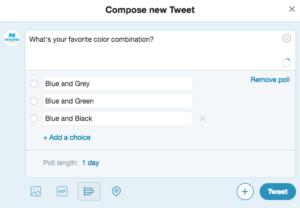Getting feedback from customers on your WooCommerce store is important. Data, analytics, and split testing are some of the evidence-gathering tools you have at your disposal, but in order to create a complete picture, you should be asking customers what they think directly.
When your WooCommerce store goes live, there are a number of factors potential customers will consider; style, user experience, and interface are only a few. Some of these factors can be researched and managed before release, others require a process of trial, feedback, and improvement.
This article looks at the ways in which you can collect vital feedback on your WooCommerce store and how each of those channels has its own unique advantages.
Direct Vs. Indirect Feedback
 There are two ways to gather customer experience feedback on your WooCommerce store: directly and indirectly. We often focus on indirect methods, particularly deductions based on measurements and observations. But direct methods — asking customers and paying attention to what they say — can help us to lock down the causes of poor performance faster.
There are two ways to gather customer experience feedback on your WooCommerce store: directly and indirectly. We often focus on indirect methods, particularly deductions based on measurements and observations. But direct methods — asking customers and paying attention to what they say — can help us to lock down the causes of poor performance faster.
When you observe that shoppers who arrive on a landing page have a higher than average chance of leaving the site immediately, it’s reasonable to develop a hypothesis about why that may be and carry out tests to see if changes to the page reduce the bounce rate. Perhaps you think that the copy on the page is confusing, so you make some changes and test to see what happens.
With enough hypotheses and tests, you will discover the key to reducing bounce rates, but it may take a long time to hit on the right explanation. It’s often quicker to ask a subset of shoppers. You don’t have to accept their answers as the absolute truth, but their input may help you formulate better hypotheses and design more effective tests.
Feedback Collection Channels
There are numerous channels through which you can collect feedback. Each of them offers its own advantages and disadvantages.
Surveys
 Surveys are the most common strategy for eliciting user feedback. This method is great for reaching a large audience directly. WooCommerce retailers can take advantage of plugins such as WPForms to create on-site surveys or use a cloud service such as SurveyMonkey.
Surveys are the most common strategy for eliciting user feedback. This method is great for reaching a large audience directly. WooCommerce retailers can take advantage of plugins such as WPForms to create on-site surveys or use a cloud service such as SurveyMonkey.
Creating surveys is easy, but getting customers to respond can be more of a challenge. You can simply ask customers to fill in a survey after they check out. However, it’s likely you will have better results if you offer a discount, voucher, or free gift in exchange for the shopper’s time.
The information you gather will be more useful and actionable if you ask a small number of specific questions. These results can be tested with an A/B test to see if they do actually improve conversion rate.
Call Customers
Another great way to gather customer feedback is to call them and ask questions directly. Calling customers is a great way to engage in high-quality, qualitative data collection and feedback.
However, most WooCommerce customers are not going to opt-in to a long phone discussion. This method can cause your customers to see you as a source of spam and it may stop them from making repeat purchases. Good use of discounts and vouchers can help to increase response rate, but it’s not guaranteed.
It’s important to be careful with who and how often you target customers in this way. One call will be ok for most people, but adding customers to a call list for repetitive questioning when they say they’re too busy, is a quick path to losing an otherwise loyal following.
Social Media
An active social media account that encourages conversations with customers can be a treasure trove of insights about customer experience and sentiment. You should pay attention to what users are saying in free-form conversations, but it is often more effective to give specific prompts — ask customers what they think.
 Social media can be incredibly revealing due to its connection to your buyer’s journey. If you’ve set up your analytics tools correctly, you should be able to track how people are entering your sales funnel and then where they are departing.
Social media can be incredibly revealing due to its connection to your buyer’s journey. If you’ve set up your analytics tools correctly, you should be able to track how people are entering your sales funnel and then where they are departing.
In addition to this, social media users represent a particular segment of your market. Data gained from this channel is invaluable for defining this segment and targeting them more effectively.
Both Twitter and Facebook can embed short surveys in their feeds and promote them to particular demographics.
Support
Your support team interacts directly with customers. They handle shoppers’ complaints and questions every day. It’s likely that no employee in the company has a better understanding of the shortcomings of your WooCommerce store and the business it supports.
Have the support team take notes regarding the most common issues customers experience. Then come up with ways of reducing those issues and improving the customer experience.
Unlock the Promise of Your WooCommerce Store
eCommerce distances retailers from their customers, which is why we rely so heavily on data and analytics to make decisions. But customers can help you to understand your business — you just have to ask.
 Learn more about why you should choose WooCommerce as your eCommerce application of choice. If you’ve already gotten started, find out what the 8 WooCommerce plugins you should know about are.
Learn more about why you should choose WooCommerce as your eCommerce application of choice. If you’ve already gotten started, find out what the 8 WooCommerce plugins you should know about are.
Alternatively, why not see what Nexcess WooCommerce Cloud hosting has to offer, and see why auto scaling is vital for eCommerce stores.

